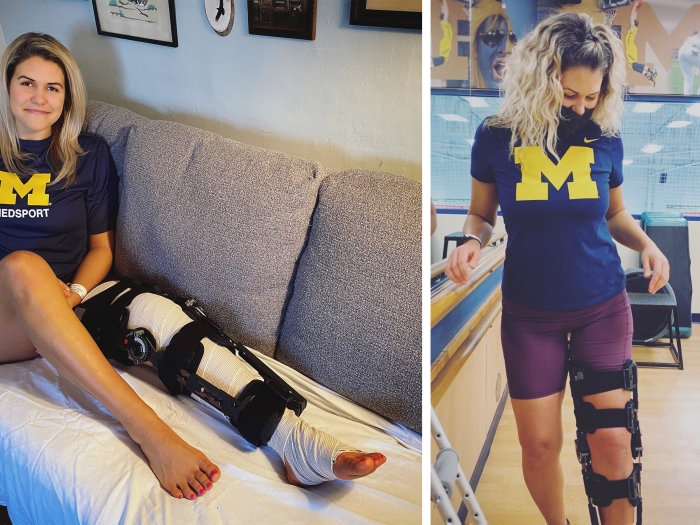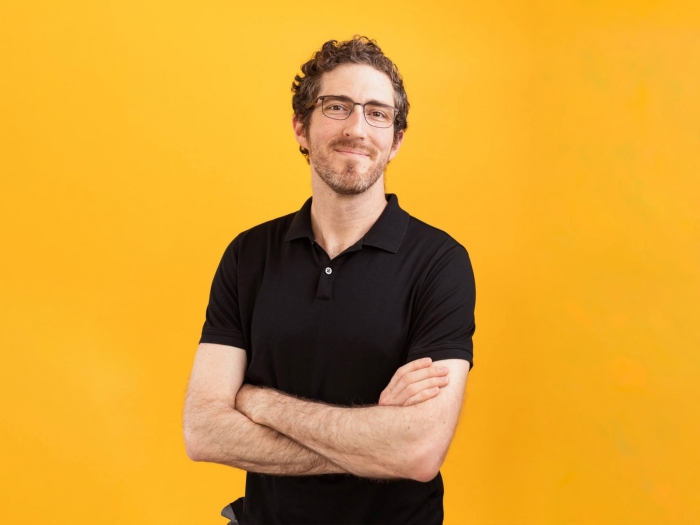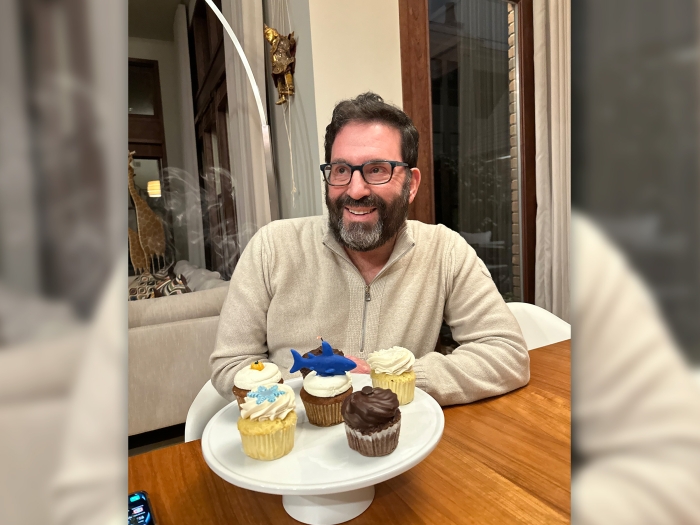For years, Maria Hochendoner of Ann Arbor received conflicting information about her high blood pressure readings. Was it "white coat syndrome"—temporary high blood pressure caused by in-office anxiety—or true hypertension?
A 24-hour blood pressure monitor finally put the question to rest: it was indeed hypertension. Hochendoner was bothered by the diagnosis. She's young, and disliked the idea of taking blood pressure medication for life, so her doctor referred her to a specially trained community pharmacist for a one-on-one consult on her hypertension.
They discussed her diet, exercise and sodium intake, and suggested lifestyle adjustments to help control her blood pressure.
"The pharmacist was helpful in sharing a lot of information that I didn't know and made me more comfortable with the diagnosis," Hochendoner said.
Such a consult between patient and pharmacist isn't a typical way of treating hypertension, but for pharmacists, patients and their physicians who are part of Michigan Medicine's team-based, comprehensive hypertension control program, it is now routine.
At the core of the program are pharmacists embedded in 14 U-M Medical Group primary care clinics. They work together with physicians to help patients manage high blood pressure in a number of innovative ways.
Patients who need extra help are referred to a clinic pharmacist, and they meet with them in a clinic setting just as they would meet with their primary care physician.
Given the success of the clinic pharmacist team-based model, the program expanded to community pharmacists at Meijer pharmacies, a unique Michigan Medicine partnership that has patients visiting a specially trained pharmacist at one of three Meijer locations in Washtenaw County. It offers an alternative option for patients to have a blood pressure follow-up appointment at a convenient location and time in the community.
Like the clinic pharmacists, the specially trained Meijer pharmacists have access to patient medical records and can document important updates to those charts. In this way, the primary care physician and pharmacists are always in sync with the treatment plan.
Overall, both parts of the program are resulting in a greater number of patients keeping their blood pressure where it should be.
The success of these efforts, which are part of the comprehensive hypertension control program, have been recognized by the Centers for Disease Control and Prevention as the top team-based hypertension control program nationally.
The program is led by Hae Mi Choe, U-M Medical Group chief quality officer and associate dean of the U-M College of Pharmacy.
With hypertension affecting one in three adults in the United States and 90 percent of Americans living within five miles of a pharmacy, it only made sense to bring the care closer to the patients, Choe said.
"I would love to expand this type of program to other geographic locations because our patients don't only come from the Washtenaw area but also from other areas in the state of Michigan," she said.
For Linda Terrell, medical director of the U-M Briarwood Clinic in Ann Arbor, the program means her hypertension patients have another, often quicker option for care.
"You can imagine when a physician cares for nearly 2,000 patients of their own they don't have time to see every patient as often perhaps as they would like," she said.
The program began in 2009, when the U-M Medical Group placed pharmacists in all of its 14 primary care clinics. These pharmacists don't dispense medications. They are there as an extension of primary care physicians to focus on medication management for hypertension and other medical conditions.
In 2016, the original clinic pharmacists program expanded to a pilot project to export the program into the community to "bring care closer to patients' homes," Choe said. "It did that by bringing these community pharmacists at Meijer stores to join our team."
By 2017, the medical group had launched a comprehensive hypertension control program that included all clinic and selected Meijer pharmacists. The Meijer pharmacists were trained by the U-M Medical Group to work with physicians and help patients like Hochendoner manage high blood pressure.
For Hochendoner, the access and relationship with the pharmacist eased her mind.
"(The pharmacist) really kind of calmed me and let me know that it was OK, and the things that I am doing, I am doing right, to (be able to) live with it," she said.
At the beginning of the comprehensive program, only 72 percent of Michigan Medicine's 40,000-odd hypertension patients met their blood pressure targets. The goal of most health systems was 75 percent in 2018.
Eighteen months after the program began, the number of Michigan Medicine patients meeting their blood pressure targets rose to 78 percent. The new comprehensive approach had worked.
For the next two years, the CDC will evaluate the program with an eye toward developing a model that's replicable nationally.
High blood pressure causes a slew of health problems, and physicians, pharmacists and researchers are always seeking new ways to control it, Choe said. However, unless it's an extreme case there aren't obvious symptoms. That's why it's important to check blood pressure at every visit, she said.
"If you think about it, there are 40,000 patients in our system who have hypertension, and improving blood pressure control by 1 percent is 400 patients," said Choe, who also directs pharmacy innovations and partnerships for the medical group. "Budging that many patients by 6 percent is quite an accomplishment."

Department of Communication at Michigan Medicine





